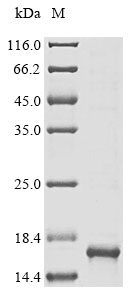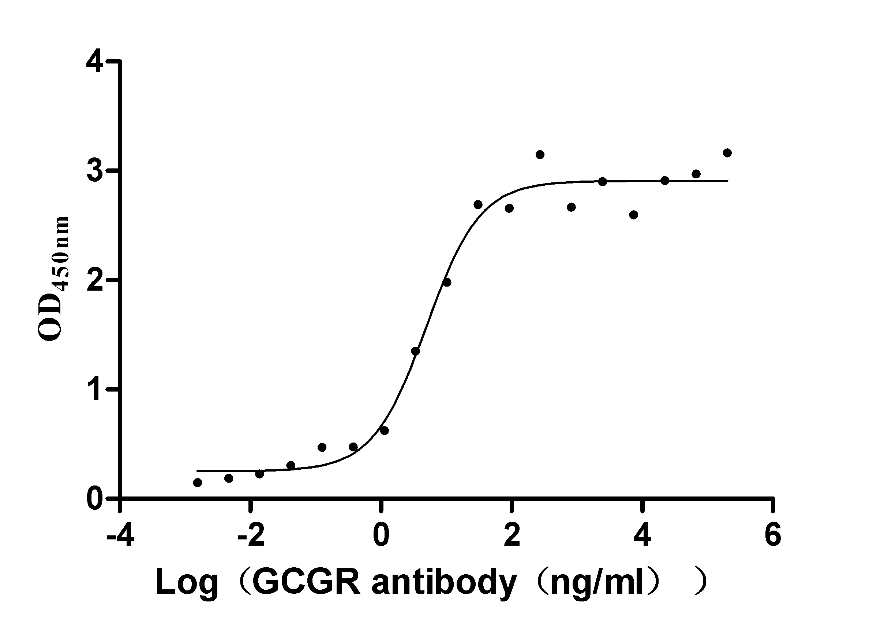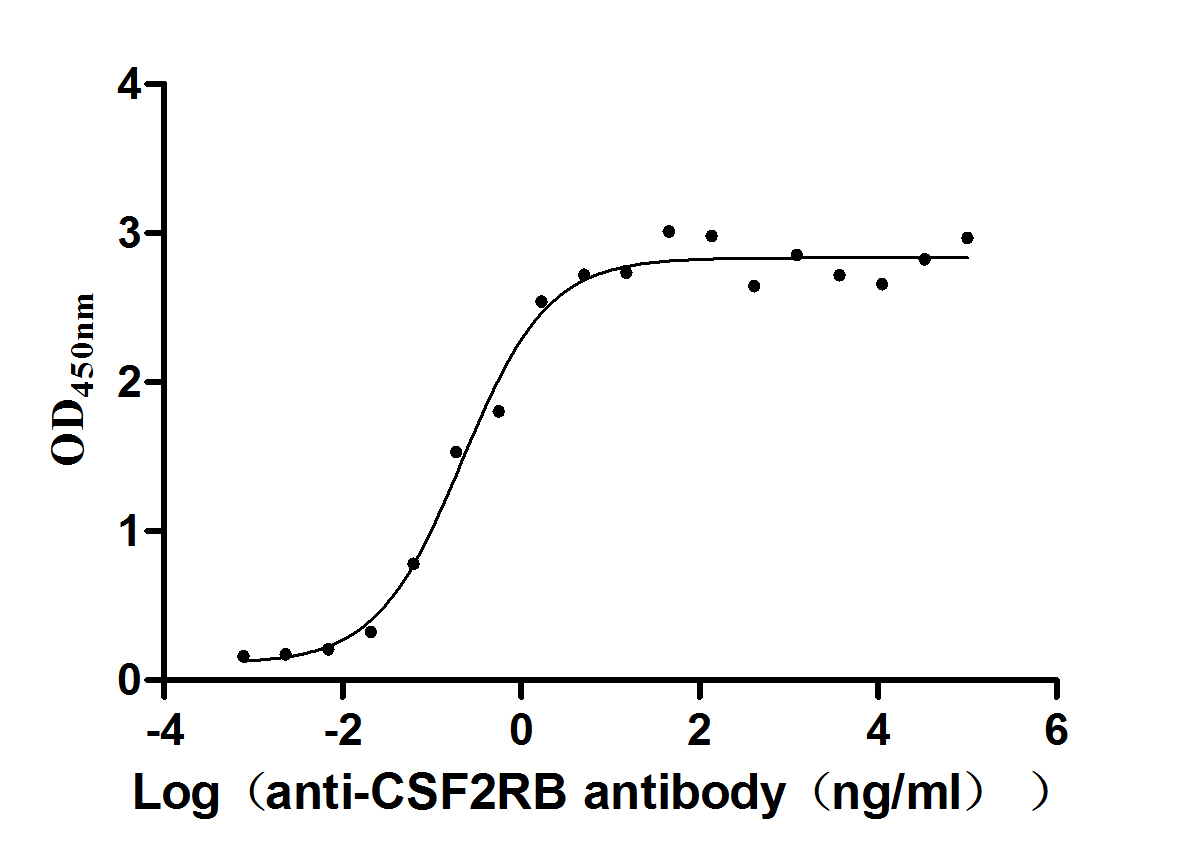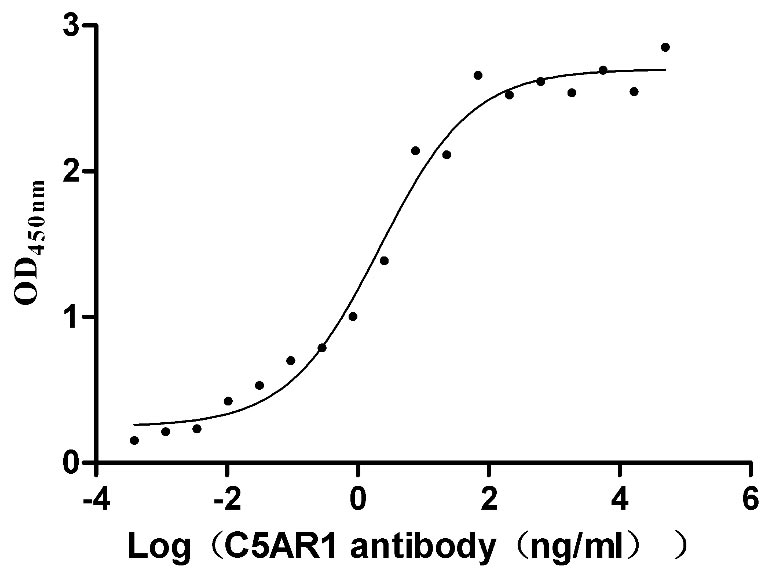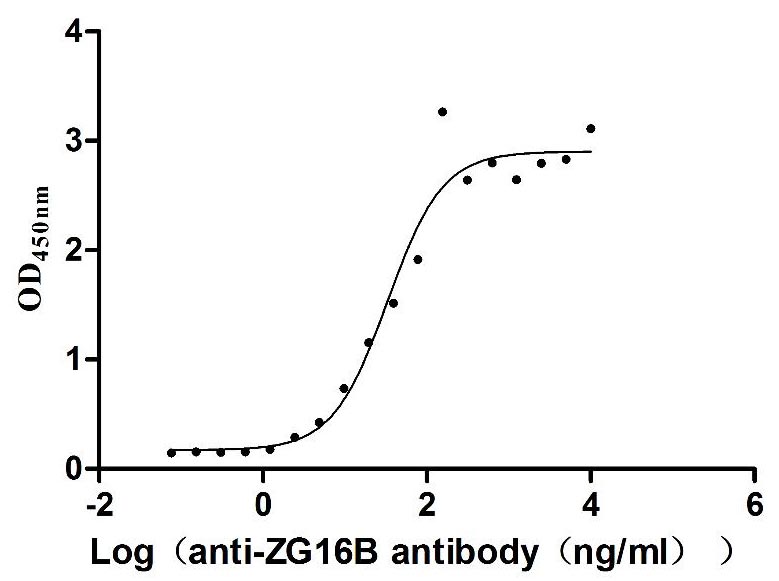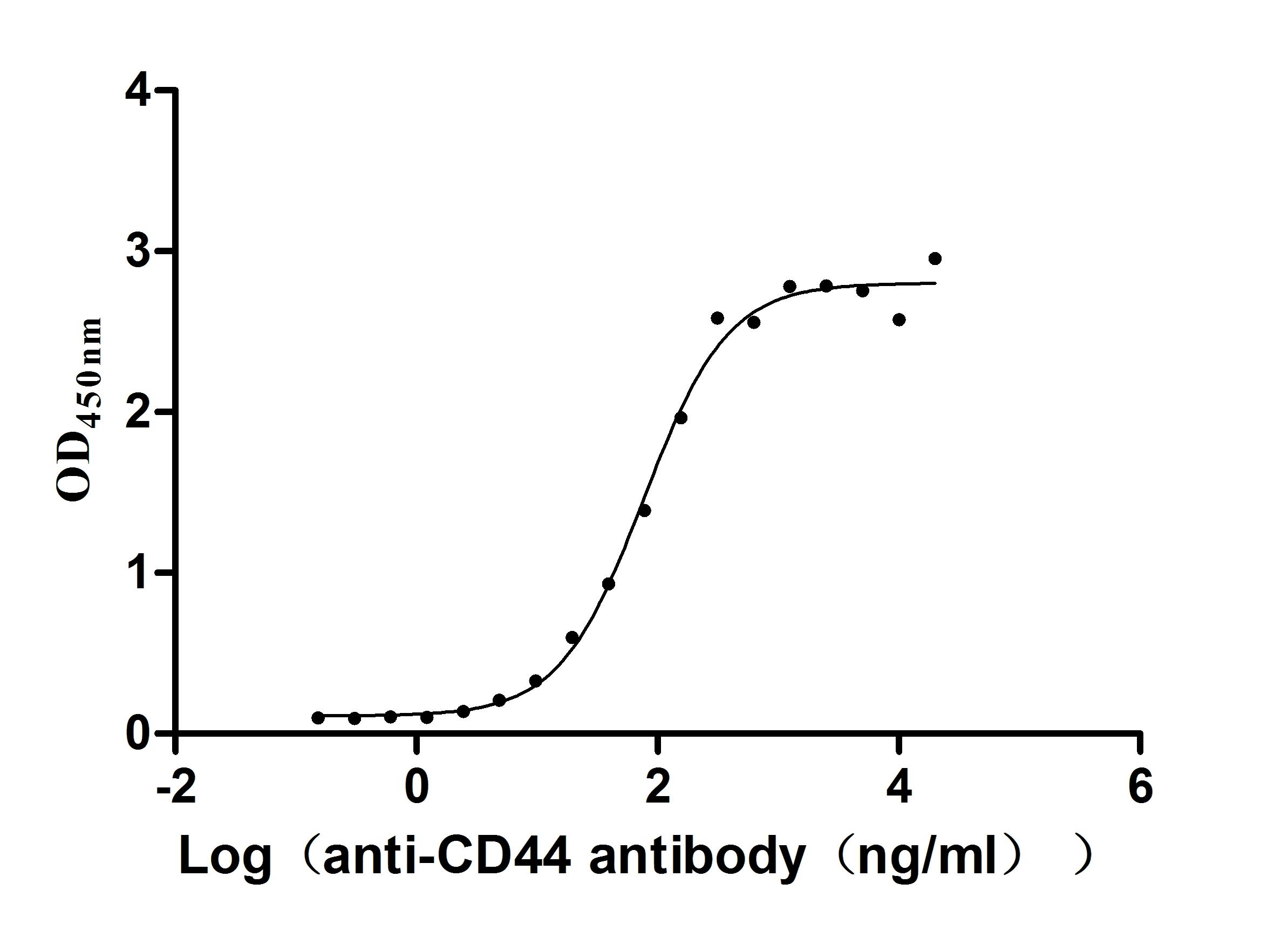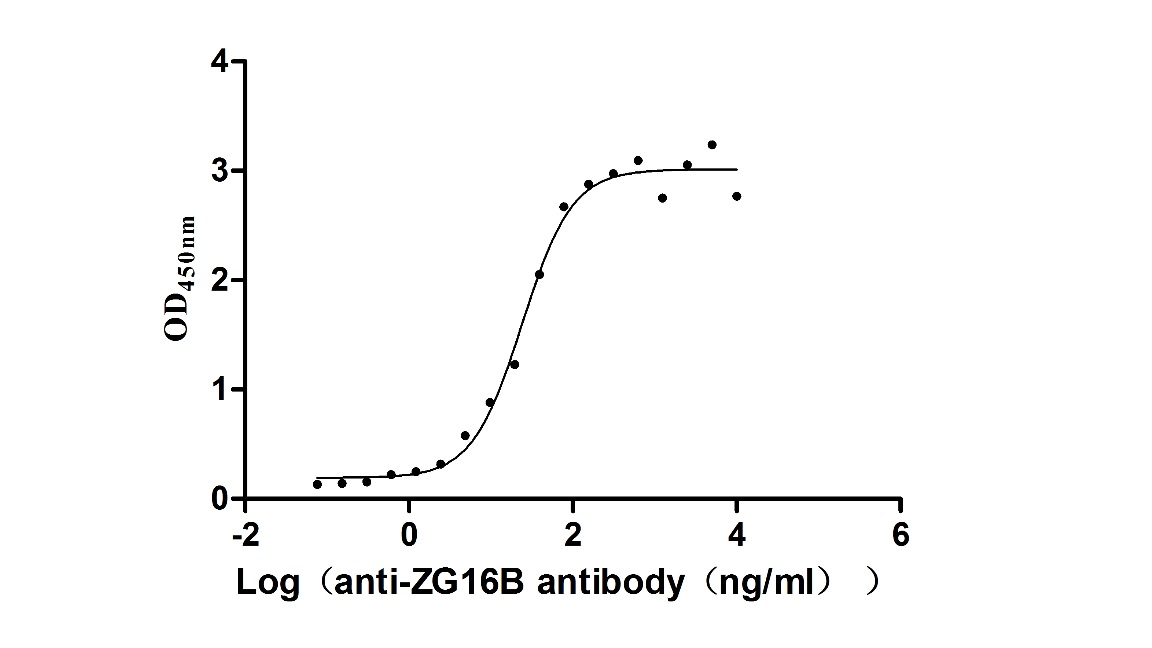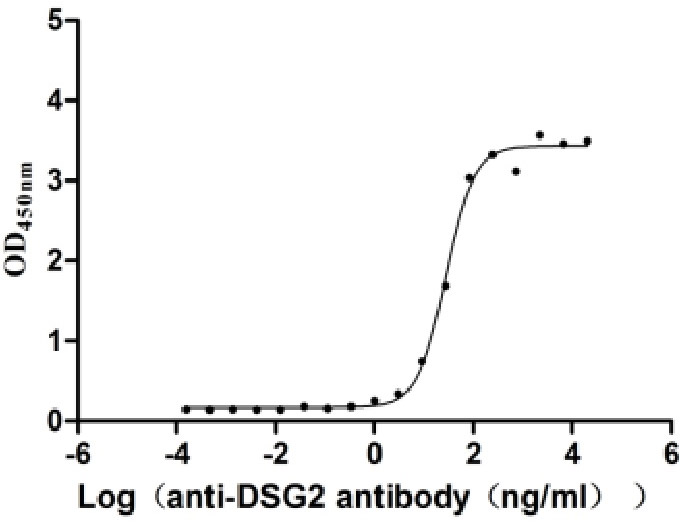Recombinant Human Carboxypeptidase D (CPD), partial
In Stock-
中文名稱:Recombinant Human Carboxypeptidase D(CPD),partial
-
貨號:CSB-EP005885HU1
-
規(guī)格:¥2328
-
圖片:
-
其他:
產(chǎn)品詳情
-
純度:Greater than 85% as determined by SDS-PAGE.
-
基因名:CPD
-
Uniprot No.:
-
別名:Carboxypeptidase D; CBPD_HUMAN; Cpd; gp180 ; Metallocarboxypeptidase D
-
種屬:Homo sapiens (Human)
-
蛋白長度:Partial
-
來源:E.coli
-
分子量:15.8 kDa
-
表達(dá)區(qū)域:383-461aa
-
氨基酸序列GVKGFVKDSITGSGLENATISVAGINHNITTGRFGDFYRLLVPGTYNLTVVLTGYMPLTVTNVVVKEGPATEVDFSLRP
Note: The complete sequence may include tag sequence, target protein sequence, linker sequence and extra sequence that is translated with the protein sequence for the purpose(s) of secretion, stability, solubility, etc.
If the exact amino acid sequence of this recombinant protein is critical to your application, please explicitly request the full and complete sequence of this protein before ordering. -
蛋白標(biāo)簽:N-terminal 10xHis-tagged and C-terminal Myc-tagged
-
產(chǎn)品提供形式:Liquid or Lyophilized powder
Note: We will preferentially ship the format that we have in stock, however, if you have any special requirement for the format, please remark your requirement when placing the order, we will prepare according to your demand. -
緩沖液:Tris-based buffer,50% glycerol
-
儲存條件:Store at -20°C/-80°C upon receipt, aliquoting is necessary for mutiple use. Avoid repeated freeze-thaw cycles.
-
保質(zhì)期:The shelf life is related to many factors, storage state, buffer ingredients, storage temperature and the stability of the protein itself.
Generally, the shelf life of liquid form is 6 months at -20°C/-80°C. The shelf life of lyophilized form is 12 months at -20°C/-80°C. -
貨期:3-7 business days
-
注意事項(xiàng):Repeated freezing and thawing is not recommended. Store working aliquots at 4°C for up to one week.
-
Datasheet & COA:Please contact us to get it.
相關(guān)產(chǎn)品
靶點(diǎn)詳情
-
基因功能參考文獻(xiàn):
- prolactin induction of VEGF-C and Runx2 was inhibited partly by Carboxypeptidase-D inhibitors, implicating nitric oxide , produced by PRL-regulated Carboxypeptidase-D, in breast cancer progression PMID: 28364216
- Carboxypeptidase-D (CPD) overexpression coincides with high-grade lung cancer and the CPD overexpression could reverse the inhibitory effects of miR-214 PMID: 27494742
- The human carboxypeptidase D transthyretin-like domain forms amyloid under physiological conditions. PMID: 25294878
- Prolactin and R1881, acting through Stat5 and androgen receptor, act cooperatively to stimulate CPD gene transcription in breast cancer cells. PMID: 24433040
- CPD immunostaining and testosterone/prolactin-stimulated CPD expression were higher in prostate cancer than benign tissues/cells. Elevated CPD increased NO production, which was abolished when both androgen and prolactin receptors were inhibited. PMID: 24615730
- Carboxypeptidase D (CPD) is frequently upregulated in hepatocellular carcinoma; targeting CPD inhibits hepatocellular carcinoma cell proliferation through induction of G1 cell-cycle arrest and apoptosis. PMID: 23589395
- Either high glucose or insulin (with low glucose) up-regulates beta-cell CPD (but not CPE). PMID: 21628999
- Palmitoylation of carboxypeptidase D has a role in intracellular trafficking PMID: 12643288
- The isolation and characterization of CPD from several haematopoietic tumour cells are reported. PMID: 15918796
- First report to demonstrate carboxypeptidase D as part of the transforming growth factor (TGF)-beta pathway as a TGF-beta target gene implicated in the pathogenesis of lupus erythematosus. PMID: 17641957
- prolactin or E2 up-regulated CPD mRNA and protein expression in MCF-7 breast cancer cells promoting their survival PMID: 18535109
- CPD releases C-terminal Arg from peptides to provide the precursor substrate for inducible nitric oxide synthase, which enhances nitric oxide synthesis in macrophages. PMID: 11306718
顯示更多
收起更多
-
亞細(xì)胞定位:Cell membrane; Single-pass type I membrane protein.
-
蛋白家族:Peptidase M14 family
-
組織特異性:Highly expressed in placenta, pancreas and hepatoma cells. Lower levels found in skeletal muscle, heart and colon carcinoma and melanoma cell lines.
-
數(shù)據(jù)庫鏈接:
Most popular with customers
-
Recombinant Human Glucagon receptor (GCGR), partial (Active)
Express system: Mammalian cell
Species: Homo sapiens (Human)
-
Recombinant Human Cytokine receptor common subunit beta (CSF2RB), partial (Active)
Express system: Mammalian cell
Species: Homo sapiens (Human)
-
Recombinant Human C5a anaphylatoxin chemotactic receptor 1 (C5AR1)-VLPs (Active)
Express system: Mammalian cell
Species: Homo sapiens (Human)
-
Recombinant Rat Intestinal-type alkaline phosphatase 1 (Alpi) (Active)
Express system: Mammalian cell
Species: Rattus norvegicus (Rat)
-
Recombinant Human Pancreatic adenocarcinoma up-regulated factor (ZG16B) (Active)
Express system: Mammalian cell
Species: Homo sapiens (Human)
-
Recombinant Macaca fascicularis CD44 antigen (CD44), partial (Active)
Express system: Mammalian cell
Species: Macaca fascicularis (Crab-eating macaque) (Cynomolgus monkey)
-
Recombinant Macaca fascicularis zymogen granule protein 16 homolog B (ZG16B) (Active)
Express system: Mammalian cell
Species: Macaca fascicularis (Crab-eating macaque) (Cynomolgus monkey)
-
Recombinant Human Desmoglein-2 (DSG2), partial (Active)
Express system: Mammalian cell
Species: Homo sapiens (Human)

